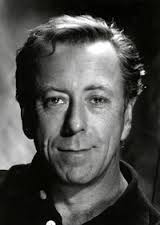
TAXI
Australia, 1979, 90 minutes, Colour.
Steve Bisley.
Directed by Russell Haag.
Taxi is an Australian telemovie, brief and ironic in its tone. The hero, played by Steven Bisley of The Last of the Knucklemen, is a pleasant mixture of the ocker with a flat accent and a heart of gold, working-class, afraid of the police and a past record, yet a man of concern for a lady in distress and for following through principle. One could wonder how accurate a picture of the Melbourne taxi driver this is - but he corresponds to a popular story hero with all the right sentiments. The plot gains in interest because it is directly connected with real Victorian land deals and corruption and investigation. The story it offers, while using the conventions of thrillers, is not entirely incredible.
1. An entertaining and interesting telemovie? Adaptation of plot and characters for home viewing?
2. The Australian tone of the film, Melbourne locations, production values, style?
3. The quality of the screenplay: the importance of Terry's narrative, the taxi driver's version of the private eye conventions? The world of taxis in the city, involvement with characters, dangers? Terry as hero narrating his own experiences, getting deeper and deeper into dangerous situations, encountering the ugly aspects of city life, his heroics? His ironic comments on his behaviour? How plausible, credible?
4. The background of real Victorian land deals and scandals in the '70s? The repercussions for government, state government, local authorities, corruption?
5. The taxi driver's view of the city and the way this was visualised? The range of passengers - the talking old lady, the alcoholic looking for the massage parlour etc.? The importance of cars, transport, communication? The taxi driver's eye view of people and events?
6. Terry as hero? An interesting type, his background, manner? His talking to the audience and confiding in them? His revealing himself and his attitudes? Was he a good taxi driver? His interest in his passengers? His involvement with Clare, her handbag, pursuing her, worried about her? His going to Armitage and the puzzle growing? The discussions about Eddie Fabian and gangsters? His fear of the police? The growing involvement and his motivation, his preoccupation with Clare becoming obsessive? Going into difficult situations, physical assault and threats, his working out what was happening? His decision to emulate the heroics of films? A hero from the middle classes and the working classes? His motivation - concern for people, principles?
7. The picture of his friend and their discussions about the events, a way of commenting on the pros and cons of Terry's involvement?
8. The world of Armitage and big business, the law, information about land deals, political espionage, threats and corruption? His marriage, involvement with Clare, his ownership of her apartment? The fact that he was set up by Fabian and Clare? The repercussions for government officials? Terry's lack of sympathy for him?
9. Clare as the damsel in distress, her reaction when Terry found her, her pleas? His realising that she was part of the set-up? Her betrayal of Armitage?
10. Eddie Fabian as gangster - type, reputation, seeing him at how, shooting practice, his hold over Clare, the set-up for Terry and Armitage? His henchmen and their violence? The involvement of this kind of person in land deals? The final shoot-outs?
11. The henchmen and their brutal behaviour, the violence and danger in the taxi driver's world?
12. The attention to detail that the film had - of Melbourne itself, streets, buildings, flats, Terry's visit to the various offices to discover the ownership of the flats, country estates etc.?
13. Popular story heroics, audience identification with Terry and his behaviour? Admiration for an ocker hero?